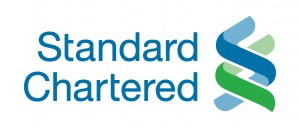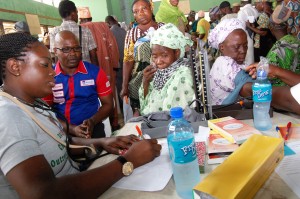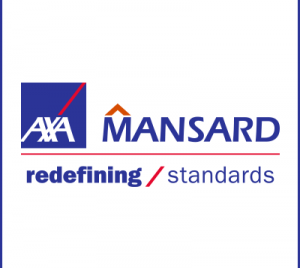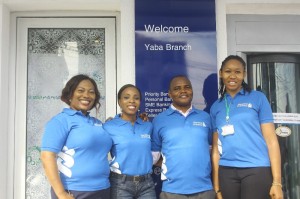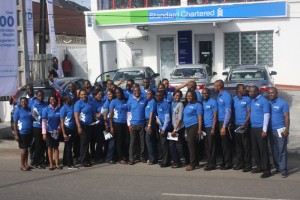Inclusion of renminbi into IMF’s Special Drawing Rights basket
The official recognition of the renminbi as a global reserve currency is more than just an important milestone for the Chinese currency; it has significant, game-changing effects on the rest of the world’s markets, Standard Chartered said.
Within slightly over a decade, China’s extensive reforms have propelled the renminbi from being non-existent on the world stage to becoming a currency in the International Monetary Fund’s (IMF) Special Drawing Rights (SDR) basket.
Bill Winters, Group Chief Executive, Standard Chartered, said: “The inclusion of renminbi into the SDR speaks volumes about how much China has accomplished since it embarked on its reforms in 2004. The speed of development has been striking and today marks the beginning of another new chapter.”
Benjamin Hung, Standard Chartered’s Greater China and North Asia Chief Executive Officer, also noted: “We are expecting further steps to include flexible cross-border investments and remittance, expansion of free trade zones and greater opening up of capital account. We are confident that China will remain committed in promoting its currency in a steadfast and well-paced manner, on track to meet our forecast of becoming a G3 currency by 2020.
Benjamin Hung added: “In the interim, there will inevitably be uncertainties and volatilities across financial markets, be it greater two-way USD-CNY variability or financial flows as international investors and reserve managers adjust their portfolio over time. It is important to brace ourselves for these developments as it takes time for market participants to rebalance against a new reserve currency, which will eventually bring positive changes to global financial markets across FX, rates, fixed-income and other asset classes.”
After the SDR review, Standard Chartered expects a gradual pick-up of diversification inflows into renminbi assets from international investors and reserves managers, of which the latter would be a critical underlying support for the CNY in the coming years. Global central banks may reallocate 1 per cent of their reserve investments into Renminbi assets annually. Standard Chartered expects inflows of US$85 billion-US$125 billion from global central banks in 2016, with at least 5 per cent of global reserves being denominated in renminbi by end-2020.
Central banks are likely to favour products such as renminbi bonds issued by the Chinese government, Policy Banks, high quality corporate bonds and Supranationals; and at the shorter-end of the curves, T-bills and bank deposits. Standard Chartered expects rising usage of the renminbi by corporates, financial institutions, and investors alike. From trade to investment to now becoming a global reserve currency, the renminbi has embarked on an irreversible journey.
AXA MANSARD SPONSORS WEST AFRICAN COLLEGE OF SURGEONS’ (WACS) COMMUNITY OUTREACH PROGRAM
In furtherance of its commitment towards the provision of quality healthcare to Nigerians of diverse socio-economic backgrounds, AXA Mansard co-sponsored the Ibadan Community Outreach Program, organized by the West African College of Surgeons (WACS).
The program was a 4-day community outreach organized by the West African College of Surgeons (WACS) and the Oyo State Government at the General Hospital, Aremo, Ibadan from Monday, November 23 to Thursday November 26. The College of Medicine, University of Ibadan, the University College Hospital, Ibadan and the Association of General and Private Medical Practitioners of Nigeria (Oyo State) actively participated in the program, which comprised health education talks, health screening and provision of intermediate surgical procedures.
Free medical services were provided for over 1700 cases, including general health checks and screening, urological diseases, obstetrics and gynecology diseases, primary dental and ophthalmological care as well as provision of eye glasses amongst others.
Mr. Tope Adeniyi, the Chief Executive Officer of AXA Mansard Health Limited commented that this initiative is part of AXA Mansard’s contribution towards improved health care delivery to Nigerians.
Professor Olapade Olaopa, Chairman of the Local Organising Committee, representing the Chairman, West African College of Surgeons Outreach Program, thanked AXA Mansard on behalf of the President and Council of the WACS for the continuous support towards the actualization of the goal of the committee which is to improve the overall health of members of the public and lead everyone to a better and healthier life.
AXA Mansard rated among Top 50 Brands in Nigeria
AXA Mansard Insurance continues to receive top ratings amongst other brands. AXA Mansard Insurance was rated among the Top 50 Brands in Nigeria by APT Brand International Limited.
Top 50 Brands in Nigeria is an annual selection of top brands in Nigeria. The award criteria include leadership structure, market acceptance, brand equity, product offerings, culture, quality service delivery and market performance.
The record is indeed significant for AXA Mansard Insurance as it is the only insurance company to receive this outstanding recognition along with other highly rated brands in the country.
The Chief Client Officer, Tosin Runsewe commented that “Our brand has grown over time and has become a symbol of our desire to keep evolving new ways of pleasing our customers. The value of our brand represents the value we place on our customers and serves as a hallmark of our brand promise to them to protect their assets, health and loved ones”.
Adding to this, the Group Head Strategy and Marketing, Kola Oni, says “We are delighted to receive this award for the second year in a row. The AXA Mansard brand is unique and this award is dedicated to our customers who have supported us over time even as they recognize and appreciate the AXA Mansard experience”.
Investing In Real Estate
Real estate is one of the world’s oldest investment activities. Humans have always required shelter, from the days of living in caves to the modern day real estate era of duplexes and sky scrapers. Real estate investing involves the purchase, ownership, management, rental and/or sale of real estate for profit. It has proven quite a profitable investment outlet for many investors, particularly over the medium to long term. However, contrary to the popular ‘safe as houses’ phrase, there are risks. It is important to note that real estate is an asset class with limited liquidity relative to other investment asset classes. Real estate is also capital intensive and highly cash flow dependent. If these three risk areas are not well managed, it is possible for an investor to fall into negative cash flow, and if this persists, the investor may be forced to sell the property at a loss or even go into insolvency. This is probably one of the primary causes of investment failure.

Investors profit from real estate in at least four different ways. Real estate appreciation occurs when the property becomes more valuable than when it was purchased due to a change in the real estate market, greater demand for the property, the land around the property becoming scarcer or busier or upgrades are put into your real estate investment to make it more attractive to potential buyers or leasing parties. Cash flow income arises from the rental streams that emanate from property such as an apartment building, office blocks, rental houses, etc. Real estate-related income is that generated by ‘specialists’ in the real estate industry such as real estate brokers, who make money through commissions from buying and selling property, or real estate management companies, who get to keep a percentage of rents in exchange for running the day-to-day operations of a property. Ancillary real estate income refers to that arising from mini-businesses within a bigger real estate investment that allows the investor to make money from a semi-captive collection of customers. A good example of this is vending machines within an office development.
There are different categories of real estate investment. Residential real estate investments are houses, town houses, apartment buildings, housing estates and vacation homes where an investor can expect rental income as well as exposure capital appreciation. Commercial real estate investments consist mostly of office buildings. This is quite an interesting area for investors as rental income from this type of investment is typically governed by long leases and offers a steady income. However, commercial real estate is often highly capital intensive. Industrial real estate consists of warehouses, petrol stations, factory-office multi-use property, factory–warehouse multi-use property, heavy manufacturing buildings, industrial parks, light manufacturing buildings and research and development parks. Retail real estate investments consist of shopping malls, strip malls and other retail storefronts. These are becoming ever more popular in Nigeria as the middle class expands and they offer investors attractive investment yields. Real Estate Investment Trusts, or REITs, trade like stocks and own a portfolio of underlying real estate or real estate mortgages. They work like a mutual fund, whereby the issuer of the REIT is a professional real estate investment company. They pool funds together from different investors and issue units in exchange. The funds are then used to create a property portfolio, which could consist of both residential and commercial property. A REIT must pay out 90% of its profits to investors to remain a trust.
As with any other investment decision, there are always key things to consider and look out for. They may make the difference between making and losing money. It is not an exhaustive list, but some of the key things are listed below:
(a) Location: This remains one of the foremost success factors in siting a real estate development. Certain locations have a better ability to ensure that real estate developments continue to attract patronage all through the business cycle and result in a greater ability to generate returns from the investment made. The location of a property investment is, of course, highly dependent upon the end use to which the property investment is to be deployed. The investment profile of a property located in a well-established location will be quite different from the same property in a run-down area.
(b) Infrastructural Development: Knowledge of new projects coming up in a neighbourhood such as access roads, a shopping mall or a rail line can significantly improve the value of the property. New roads and rail lines mean improved access to a certain area, thereby making the area more attractive to prospective tenants and investors. It can, however, also reduce the value of the property if, for instance, the new rail line runs close to the house, with the noise from the trains constituting a nuisance. The same applies to shopping malls or airports as they will bring with them new jobs and naturally employees looking for accommodation. Imagine the increase in value to an area previously without power supply and a contract is awarded to install and connect power lines to that area.
(c) Inflation Outlook: Inflation affects the value of money and investments. For an investment to give real returns it has to be above inflation. So a property returning 5% per annum in an economy where inflation is 10% cannot be said to be really profitable.
(d) Interest Rates: Most real estate investments are financed with debt. This occurs especially when leveraging occurs. In leveraging you pay for a property by contributing an amount as capital and funding the rest by a mortgage loan. In the event that interest rates rise, it means that your cost of funding will rise, thereby reducing your profit margin. It also makes it harder to sell the property as the potential buyer has to consider the elevated interest rate that he has to pay, thereby making the purchase less attractive. It might lead to the potential buyer asking for a discount to cover elevated interest rates.
(e) Population Growth: Growth in population means an increased need for housing. Not just for housing but also for service providers for the growing population. These service providers (bank branches, new stores etc.…) would have to acquire or rent property to operate from. So, population growth is an important factor in real estate investment. Also, migration to a particular area by the population would be another factor. In Lagos, Nigeria, the growing middle class seems to prefer living in the Lekki area, which has led to an increase in house prices and rent and also to the proliferation of shopping malls and supermarkets.
(f) Projected Economic Growth/Wellbeing: A growing economy with a growing middle and upper class means more demand for everything, from clothing to food and to property. A growing economy also means more investible income, with people looking to buy their first house or for other real estate investments. To put it in perspective, an economy in recession means job losses or cost cutting by firms. This means fewer people with investible income to acquire real estate. It also means that people who have lost their jobs will start to default on their mortgage or rent payments. This will eventually lead to forced sales of property, bearing in mind that forced sales are normally at a discount. The final outcome will be decline in real estate value.
(g) Government Policies: Policy shifts may affect the real estate market. It could be in terms of increased or reduced taxes or an effect of capital gains on property investments. The recent change in capital gains tax by the Chinese authorities led to a scramble by investors to sell off their property holdings to avoid paying the 20% capital gains tax. Other policies such as increase in lending rate for second or third home buyers also can affect the market.
Nigeria is a country of over 160 million people with a housing deficit of over 16 million housing units. Ordinarily, this would constitute a huge opportunity for investors as demand clearly outstrips supply. However, we have not seen this gap being met due to the high cost of real estate in Nigeria and the inability of the masses needing property to afford it. Urban migration has led to demand for housing units in cities such as Ibadan, Port Harcourt, Warri, Enugu, Benin, Lagos and Abuja, with the housing deficit still unmet. Factors such as the high cost of land, elevated interest and mortgage rates, and poor infrastructure continue to adversely impact upon the availability of affordable, quality housing stock within the country.
For portfolio investors, analysis has repeatedly shown that real estate enhances diversification and acts as an inflation hedge. A low correlation to both stock and bond returns suggests that real estate investments have the potential to lower overall portfolio risk while the ability to increase rental rates in times of high inflation affords the opportunity to maintain the real value of a portfolio. Real estate should therefore be a constituent of most investors’ portfolios. Whilst this may be difficult for the average investor to achieve on account of a relatively high investment outlay, professional investment managers are well positioned to package that exposure to investors through mutual funds and real estate investment trusts.
Allow us to tell you a short story…
Allow us to tell you a short story….
Mr. and Mrs. John Lagbaja built a modest 4 bedroom duplex in Ilupeju, Lagos. It took them six years and a great deal of sacrifice following the graduation of their youngest child from the university. Years of saving and investment paid off as they were finally able to move into their own home. It was a dream come true as excited friends and well-wishers attended the formal “house-warming” party. Prayers were offered by their parish priest and the small crowd assented to his prayers with cries of “Amen!”
Their first child who lived in the US sent them some money to furnish the new house as only new furniture and fittings would do. Mr. Lagbaja had prudently used the money to furnish and equip their new home with electronics, furniture, fittings, some security gadgets etc. only relinquishing control to his wife when it came to furnishing the kitchen! The Lagbajas were now landlords in Lagos.
7 months later on a warm February night, Mr. John Lagbaja who was the lighter sleeper woke up to sounds of faint shouting. He looked at his watch and it was 3am in the morning. What was going on? His phone started to ring. He grabbed it and it was then he detected the smell of smoke. The call was from a neighbour: “Sir! Fire! Fire! Your house is on fire!!” He quickly woke his wife and ran out of the house.
By 5am the fire had been put out through a combined effort of volunteers and the fire-fighting service but the damage caused by the fire was considerable. Two rooms with their toilet and bathrooms were burnt from floor to roof. The ceiling and roof of their bedroom was also affected. Black smoke had darkened the walls and the heat had melted the wiring and other parts. Water from the hoses had left every other thing soaking wet.
The Lagbajas wept and tried to console each other. How would they recover from this?
(Alternate ending)
As Mrs. Lagbaja wept her husband tried to console her, assuring her that everything would be fine. A few days later the Lagbajas received a cheque from AXA Mansard. His prudence had paid off.
The AXA Mansard Home Insurance plan protects you and your home against the risk of fire, flood, burglary etc. It does not matter whether you own a house, live in a rented apartment or you are sharing with friends or family, we offer you and your property and belongings protection from total loss.
For more information, please visit our website at www.axamansard.com, or email us at insurancecare@axamansard.com. You can also call us on 0700 AXA Mansard.
Let’s protect you.
AXA Mansard
SUPER SEVEN FC PICKS NIGERIA’S TICKET TO REGIONAL FINAL
Nigeria is to be represented at the regional circuit of the ongoing Standard Chartered Bank’s Road to Anfield five-a-side competition by Super Seven FC.

Mrs Yetunde Oni, Head Commercial Clients, Standard Chartered Bank (3rd left), presenting the Trophy to Captain of Super Seven Football Club, Ojo Babatunde Damilola, the winner of the just concluded Standard Chartered Road to Anfield 2015 competition.
Super Seven bagged the ticket to the regional final in Accra, Ghana after defeating Dobber FC 6-5 in a penalty shoot-out at the Astro Turf ground in Lekki, Lagos. Neither of the two sides could end the scoreless deadlock at regulation time. Also to join Nigeria and host Ghana at the Accra soccer fiesta is The Ghana. The three are to battle for the West African ticket to Anfield in the UK where the winners of the East and Southern African regions will also play.
According to the Sub-Regional Head, Brands & Marketing, West Africa of Standard Chartered Bank, Diran Olojo, the ‘Standard Chartered Trophy’ is an international five-a-side football tournament organised by the bank in partnership with Liverpool FC.
“It offers football fans a once in a life time, money can’t buy, opportunity of playing at an English Premier League football pitch as well as been coached by Liverpool FC’s Manager, Brenda Rodgers,” observed Olojo at the trophy presentation at the weekend.
Standard Chartered’s global footprints will compete for the ultimate trophy on May 7 and 8, 2015. The winners of the ‘Finals’ will be crowned overall champions of the ‘Standard Chartered Trophy 2015’.
Also speaking at the end of the national final last Sunday, Country Head, Corporate Affairs, Standard Chartered Bank, Nigeria, Dayo Aderugbo, expressed her happiness at the level of performance of the players and the huge turnout of football fans.
“I am so excited with the level of performance. We have a huge turnout. 36 teams registered and contested in the championship. So, regardless of the club you support, it’s a chance to come together and win together and go and play in Anfield, the home of Liverpool FC,” she noted with excitement.
Standard Chartered Rewards Customer with Porsche Cayenne
Standard Chartered Bank Nigeria Limited has fulfilled the promise it made to its customers by rewarding them for their loyalty over the years. The bank’s Mega Rewards promotion was cappedwith the presentation of a Porsche Cayenne SUV to Mr. Taiwo Ayoku, a Lagos based businessman, who won the star prize in the promotion.
The Mega Rewards Promo, which ran from February 17 to June 30, 2014, was a deliberate effort by the bank to encourage its customers to save. The mode of participation was clear and quite simple as existing customers were required to deposit a minimum of N50, 000 in their accounts and maintain the amount for 2 months to qualify for the mini draws. Customers qualified for the Grand draw if they maintained the funds in their accounts for 3 months.
During the award presentation at the bank’s corporate headquarters’ located on Ahmadu Bello Way, Victoria Island, Lagos on Friday, October 31, 2014, Mrs. Bola Adesola, Chief Executive Officer (CEO) of Standard Chartered Bank Nigeria Limited stated as follows;
Today marks another demonstration of our brand promise, “Here for Good”. We are here today to fulfil that promise – by rewarding our loyal customers who have chosen Standard Chartered Bank as their trusted partner. As a bank that connects its customers to global opportunities around the world, Standard Chartered Bank has built a reputation of trust for over 150 years. We value our relationship with our customers because we believe that the strength of any relationship comes from listening, understanding and responding adequately to their needs. This is why we commenced the 2014 Mega Rewards Promotion in February.”
Diran Olojo, Head, Brand & Marketing – Nigeria & West Africa, Standard Chartered said;
“One of the objectives of the Mega rewards promotion was to grow our customer base in addition to expanding our deposit base. As we grow our business, it is our delight to also ensure we meet the aspirations and financial needs of our customers. We are here today to establish the fact that we will always deliver on the promises we make to our customers, a clear demonstration of our commitment to our brand promise ‘Here for good’” he stated.
Taiwo Ayoku, the proud winner of the Porsche Cayenne, who attended the event with his wife, stated that he has maintained his account with Standard Chartered Bank for over four years. Naturally, he was elated to have won the star prize and reiterated that he will continue to be a committed stakeholder of the bank.
At the end of the promotion, five other customers emerged as millionaires while a total of sixteen customers also won consolation prizes such as iPads and smart phones.
- Published in Campaign
Standard Chartered Bank Nigeria officially opened its new branch located in 279, Herbert Macaulay, Yaba, Lagos. The opening of the branch is as a result of the Bank’s strong business growth in Nigeria and its strategic expansion drive in the country. Lagos presents the Bank with tremendous opportunities in a country which is central to our business footprint in Africa. The strength of the Nigerian market has been reflected in our Bank’s business growth which has been exponential.
As part of efforts to identify with the branch community, the bank’s staff took part in the traffic control at Alagomeji junction by assisting the authorities with the control of vehicles at the junction. The community service, which span the whole day, further confirms the bank’s commitment towards delivering its brand promise “Here for Good”.
Bola Adesola, the Managing Director of Standard Chartered Bank, Nigeria said:
“We are quite pleased with the generous support we have received from the Government and people of Nigeria since we commenced business here in 1999. This has been quite encouraging and we fully intend to keep up our side of the bargain by consistently delivering on our brand promise to our customers. We believe this is an auspicious period to capitalize on the extraordinary growth dynamics in the country and the establishment of another branch in Lagos Mainland is a key element in executing the bank’s strategy to grow the business and outperform our competitors. We appreciate the continuous support we have been given by the people of Lagos and we look forward to the growth of our business across all indices in the state.”
New customers of the branch will enjoy the partnership of an International Bank that offers over 100 wealth management packages and other innovative financial solutions such as hassle free personal loans, mortgage loans at competitive rates, Priority Banking, Employee Banking, eSaver, debit and credit cards. The first 100 customers of the branch will also enjoy amazing offers like free movie tickets, instant gifts, free Naira Visa Debit Cards and free International transfer for one month.
NHIS Approves Mansard Health, 38 Others for HMO Business
The National Health Insurance Scheme (NHIS) has reaccredited 39 companies for Health Maintenance Organisation, HMO business in Nigeria. After due diligence and a painstaking audit process together with PwC, the regulatory agency re-accredited among the leading firms for HMO business as Hygeia, THT and Mansard Health.
The regulatory body gave guidelines to retain HMO business to include capitalisation of up to N400 Million for national, N200 million for state and N100 Million for Zonal operators respectively. Subsequently, the NHIS gave approval to 39 firms.
The NHIS defines HMOs as a private or public incorporated company registered by the Scheme solely to manage the provision of health care services through health care facilities accredited by the Scheme.
Welcoming the new development, Tope Adeniyi, chief executive officer of Mansard Health Limited noted that it gives the company further impetus to maintain and even improve on the excellent services they are already offering to the public.
He stated that Mansard Health has as its cardinal policy, to offer top of the range services to its clientele across board.
Adeniyi stated that Mansard Health ranks amongst the top HMOs both in capital as well as high quality service delivery in Nigeria, and adds that its recent capitalisation along with the Mansard Group’s capital base in excess of N15 Billion gives it more than enough strength to operate in the system. He stated that the company has recapitalised since May 2013 to give it a national HMO operations status.
He noted that Mansard Health product offerings are divided into Bronze, Silver, Gold, Platinum and International health plans. “All plans have comprehensive healthcare offerings for family, individual and corporate clients,” Adeniyi stated.
Adeniyi stated that the company has begun key innovative process leading to massive investment in information communications technology (ICT) infrastructure. This has led to deployment of a 24/7 Call Centre to boost its service offering to clients.
“IT solutions are key drivers in our new operations. Deploying IT infrastructure has cut down waiting time of our clients in the hospitals as well as enhanced the payment of claims to the providers from market experience of three months to just two weeks.
“We also offer pre-booking services online which makes it easier for our clientele to reach us. Our 24-hour Call Centre which can be accessed through clients’ mobile phones from anywhere, and at anytime,” Adeniyi said.
The Mansard Health operates through a network of hospitals spread across the 36 states of the federation and the Federal Capital Territory, (FCT) Abuja. It also underwrites International health plan which enables Mansard Health clients to have easy access for treatment abroad.
In addition, Mansard Health provides International Evacuation activation system which allows for critically ill clients to be flown overseas in air ambulance for treatment.
MANSARD OPENS WELCOME CENTRES IN ENUGU AND UYO
In keeping with its strategy of retail expansion in the drive to make insurance products and services readily accessible to Nigerians from all walks of life, Mansard Insurance plc has opened two new Mansard Welcome Centres in Enugu, Enugu State and Uyo, Akwa Ibom State. Following on the official opening of the Mansard Welcome Centre at Suite A5, Bethel Plaza, Garden Avenue, Enugu State was the opening of the Uyo centre.
The Mansard Welcome Centre in Uyo, Akwa Ibom State which is located at Number 110, Abak Road, Uyo, Akwa-Ibom State is meant to serve customers and prospects. The Mansard Welcome Centre was formally declared opened at a brief ceremony on Friday August 22, 2014 by the Special Adviser to the Commissioner of Youth & Sports, Akwa Ibom State – Honorable Ese Umoh. At the tape cutting event, Honorable Umoh appreciated the management of Mansard Insurance for coming to Uyo, Akwa Ibom State to empower the youths and also increase the awareness and benefits of risk management in the state. The ceremony was followed by an awareness walk to sensitize the residents of Uyo on the usefulness of insurance.
The Mansard Welcome Centres provide opportunity to purchase Mansard’s products and services in the life, non-life and health insurance segments. Customers may also receive after sales services at the centres.
In the last quarter, four new Mansard Welcome Centres were opened, in the South West; at 15/17 Opebi Road Lagos State and Broking House in Dugbe Ibadan Oyo State, in the North West; at Minna Central Business District, Niger State and at Angwar Rimi GRA, Kaduna North, Kaduna State.
The new Mansard Welcome Centres in Enugu and Uyo brings to nineteen, the number of such centers across Nigeria.

